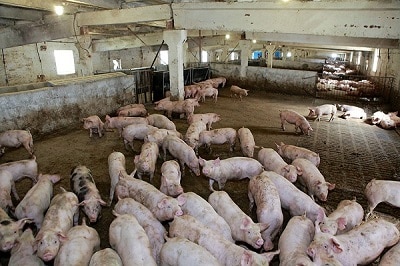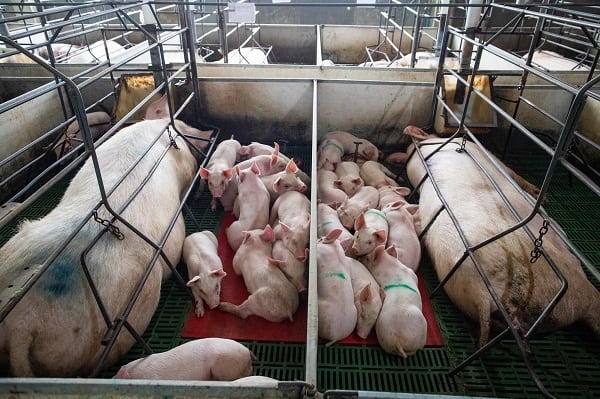How to Turn a struggling pig farming business into success. To turn around a struggling pig farming business, you can consider the following steps:
- Review your expenses: Take a close look at your operating expenses and see if there are any areas where you can cut costs. This could include reducing feed costs, reducing labor costs, or finding ways to reduce energy and other operational expenses.
- Evaluate your marketing strategies: Make sure that you are reaching your target market effectively. Consider hiring a marketing consultant to help you identify and target your ideal customer base.
- Update your business plan: Review your business plan and make any necessary changes to reflect your current situation. This could include adjusting your goals, changing your target market, or updating your operating and marketing strategies.
- Consider alternative products or markets: Pig farming is a competitive industry, and there may be other opportunities for you to sell your products or reach new customers. For example, you may consider selling pork cuts directly to consumers, offering value-added products such as bacon or ham, or exploring export markets.
- Seek advice from experts: Consider speaking with a business consultant, an agricultural extension agent, or other industry experts who can help you identify problems and develop solutions.
- Diversify your operations: Diversifying your operations can help reduce your risk and increase your revenue streams. For example, you may consider raising other livestock or crops, or exploring value-added products such as processed meat products.
- Implement cost-saving technology: Invest in technology that can help you increase efficiency and reduce costs, such as automated feeding systems or waste management systems.
By taking these steps, you can turn your pig farming business around and achieve greater success. It’s important to be persistent and adaptable, and to continuously evaluate and refine your strategies to ensure that you are operating as efficiently and effectively as possible.

Apply these 5 Best Practises for your Pig Farming Business
Pig farming is the process of raising pigs for the purpose of producing meat, leather, and other by-products. It is an important industry in many countries, providing jobs and food for millions of people. In this essay, we will discuss the history of pig farming, the benefits of raising pigs, the challenges facing pig farmers, and best practices for pig farming.
History of Pig Farming: Pig farming has been a part of human history for thousands of years. Ancient civilizations such as the Egyptians and Romans raised pigs for food and other uses. In the 19th century, pig farming became an important industry in the United States and Europe, and it has continued to grow in popularity and importance to this day.
Benefits of Pig Farming: Pig farming offers several benefits, including a steady source of food and income for farmers, as well as job opportunities in the processing and distribution of pork products. Pigs are also highly adaptable animals that can be raised in a variety of environments and climates, making them a versatile and profitable livestock option for farmers.
Challenges Facing Pig Farmers: Despite the many benefits of pig farming, there are also several challenges that farmers face. One major challenge is disease control. Pigs are prone to several diseases, including swine flu, and keeping them healthy requires careful management and veterinary care. In addition, pig farming can be a highly competitive industry, with large commercial operations often dominating the market and making it difficult for small-scale farmers to compete.
Another challenge facing pig farmers is environmental sustainability. Pig farming can produce large amounts of waste, including manure, which can harm the environment if not properly managed. Pig farmers must take steps to reduce their environmental impact, such as using composting and other waste management practices.

Best Practices for Pig Farming: There are several best practices that pig farmers can follow to ensure the success and sustainability of their operations. These include:
- Proper nutrition: Pigs require a balanced diet to maintain good health, and farmers should feed them a diet that meets their nutritional needs.
- Disease management: Pig farmers should work closely with their veterinarian to implement a comprehensive disease management program that includes vaccination, quarantine procedures, and biosecurity measures.
- Environmental sustainability: Pig farmers should take steps to minimize their environmental impact, such as using composting and other waste management practices to reduce the amount of manure produced.
- Responsible breeding: Pig farmers should use responsible breeding practices, such as artificial insemination and genetic selection, to improve the quality and productivity of their pigs.
- Market analysis: Pig farmers should stay up-to-date on market trends and consumer preferences to make informed decisions about what products to produce and how to market them.
In conclusion, pig farming is an important industry that provides food, income, and jobs for millions of people. While it presents several challenges, including disease control, environmental sustainability, and competition, there are best practices that farmers can follow to ensure the success and sustainability of their operations. Whether you are a small-scale farmer or a large commercial operation, it is important to understand the history, benefits, challenges, and best practices of pig farming to ensure your success in this important and rewarding industry.
Final Conclusion
Pig farming is the practice of raising domestic pigs as livestock for meat, leather, and other products. It involves providing pigs with food, shelter, and medical care, and can be done on a small scale (such as a backyard operation) or on a large commercial farm. The most common breeds of pigs raised for meat include the Yorkshire, Berkshire, and Duroc, and they are usually fed a diet of grains, protein supplements, and roughage. Pig farming can have environmental and ethical concerns, such as waste management, disease control, and animal welfare.
Turn a struggling pig farming business into success
YouTube Channel: Farming South Africa
Facebook Page: Farming Life
Back To Home Page: Farming South Africa

